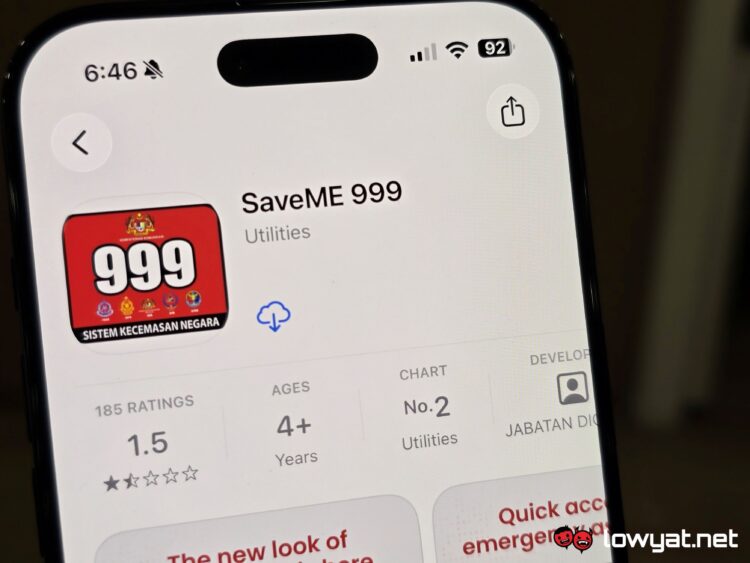Telekom Malaysia (TM) has issued a statement, addressing complaints surrounding the failures of its Next Generation Emergency Response Services 999, or NG MERS 999 in short.
Malaysia upgraded the 17-year-old MERS999 platform because it had reached its technical limits and could no longer support the country’s evolving emergency requirements. NG MERS 999 was introduced to enhance accessibility, strengthen multi-agency coordination, and align Malaysia with modern international emergency standards.
Upon this migration, we saw a surge in call volume immediately. While the previous system averaged around 50,000 calls per day, the new NG MERS 999 received close to 70,000 calls per day. About 5% of the calls were genuine emergencies, with the rest being silent and prank calls. However, the number of actual emergency incidents remained unchanged, ranging at an average of 3,500 emergency reports despatched per day.This sudden spike affected system performance, and we have taken immediate measures to restore the service including increasing server capacity and optimising the servers’ configuration. Additional resources were also mobilised in the call centre to cope with the high-volume calls.
We would like to emphasise that the 999-voice service remains and continues to operate as the primary channel for emergency assistance. SaveME999 mobile application serves as a complementary channel for reaching emergency services. Users can refer to published FAQ in https://999.gov.my website for installation and registration guide.
TM’s NG MERS 999 officially kicked off just three days ago, in collaboration with the Communications Ministry. The system replaces the old MERS 999 platform, which ran for 17 years and reached its technical limit.
As well-meaning as TM’s actions were when it developed and launched NG MERS 999, the function has proven to be more cumbersome and tedious than intended. One unfortunate user took to social media, saying that they couldn’t save their family member in time, all because SaveME 999 – the app tied to the NG MERS 999 – requires that you download the app, proceed to register for it, before you are even able to use it.
One first responder said that the app was constantly crashing and giving error messages when the alerts hit the hospital. “Sometimes it would hang and we had to refresh it several times for the alert to go through,” they added. “This system should have been properly tested first. There was a reason why we had borders when it comes to responding. This was to ensure quick response to emergencies. However, this borderless technology is not helping. In fact, it is hampering efforts to render quick aid,” he added.
According to The Star, another case occurred in Telok Air Tawar, Butterworth, when two ambulances were sent to the same spot. 999 could not identify which was the actual ambulance sent.“This situation is no longer a minor technical issue; it has the potential to become a national disaster that could cost lives. The failure of such a critical system, which serves as the nation’s lifeline, is completely unacceptable,” Senator Dr RA Lingeshwaran said.


